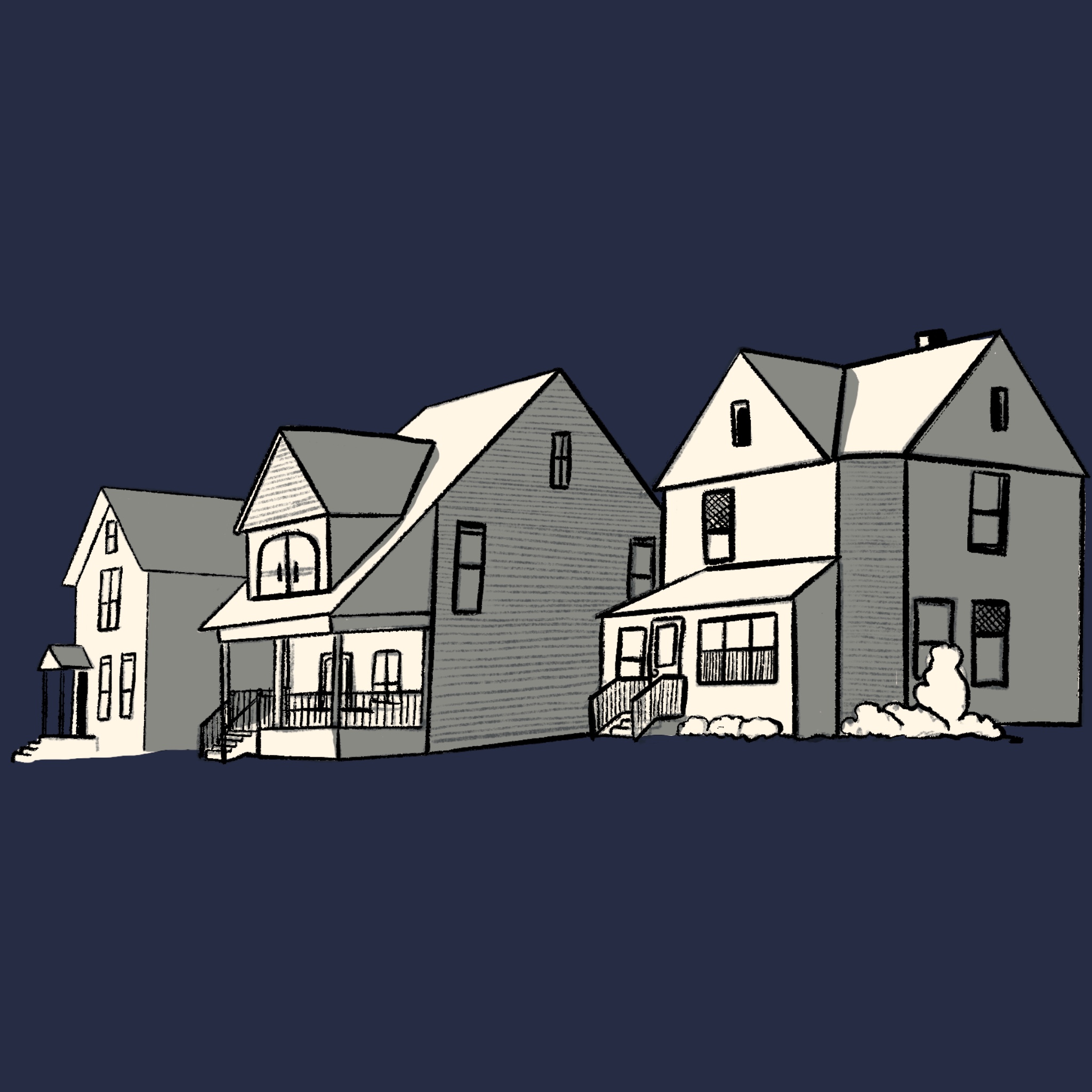Four years ago, Creeks Edge Apartments renters were frustrated by a slew of fees at the complex in Austin, Texas.
Their landlord charged them $30 for each cigarette butt outside the building. Renters received $50 fees if their kids left toys on their porches and $100 fees for any trash outside their apartments. Tenants also received fees for not having rental insurance and in exchange for the landlord not filing an eviction, sometimes called an eviction avoidance fee.
Shoshana Krieger is project director of Building and Strengthening Tenant Action (BASTA) in Austin, a program of Texas Rio Grande Legal Aid. She said the Creeks Edge fees became the subject of a 2019 lawsuit against the complex’s owner at the time, Cooper Street Capital, which ended in a settlement. Since then, Krieger continues to see over-the-top fees in other Austin rentals, and the tacked-on charges are growing more expensive.
Some apartments require renters to pay fees for services they don’t want or use, like valet trash pickup or cable. And some property managers charge processing fees for rent payments—no matter how tenants pay.
“It’s just fee, upon fee, upon fee,” Krieger said.
Will Beck, assistant managing attorney of Tacomaprobono Community Lawyers in Washington, said processing fees for online rent payments are common in Tacoma, where they can run about $10 per payment.
“It may not seem like the biggest deal in the world, but if you’re living paycheck to paycheck, every dollar counts,” he said.

Along with tremendous rent increases, rental fees have become common across the country since the pandemic.
In some cases, these charges push true housing costs hundreds of dollars over advertised rents. In a report from the National Consumer Law Center, a South Carolina housing attorney said that rentals advertised for $1,100 per month could rocket to $1,800 due to undisclosed fees.
“When we talk to policymakers, we’ll often hear people say, ‘My lease is chock-full of these fees, too,’” said Ariel Nelson, staff attorney for the law center and a co-author of the report. “But the people it harms the most are low-income people and often renters of color.”
Homeless service provides, legal aid attorneys and other advocates say fees make housing less affordable, fueling evictions and homelessness. Renters often don’t know about fees until they sign a lease or later, when they discover the charges. And fees are sometimes excluded from research on housing costs and affordability, minimizing the true living expenses many Americans face.
“It’s kind of like death by a thousand cuts,” Krieger said. “All of those little things do wind up adding up, and it really hurts people’s ability to plan. It also hurts in terms of policymakers trying to effectuate good affordable housing policy because fees are totally hidden.”
Some renters get a fee each year—just because it’s January
Some rental fees exceed the cost of what they’re supposed to cover—or don’t really cover a service at all.
Two examples come to mind for Nelson: Some property management companies charge renters fees each time they place notices on their door. And in Minnesota, some tenants receive fees each January for no particular purpose.
“Part of the reason they’re so egregious is it feels like landlords are clearly profiting off of them,” Nelson said. “It’s not just to cover the cost of something.”
[ Read more: In Oklahoma, corporate landlords are filing evictions without the legal right to sue ]
Renters and legal aid attorneys have reported fees for pest control, month-to-month leasing, using common areas, having guests and mail sorting. Some leases require renters to pay pet rent, monthly charges for living with pets, which are often charged in addition to non-refundable pet deposits and pet cleaning fees.
The National Consumer Law Center report found late fees also can be excessive. Some landlords charge late fees that equal certain percentages of a monthly rent payment—sometimes as high as 50% of the rent, a housing advocate from Ohio said. In Arkansas, steep daily late fees can cost the same as a month’s worth of rent.
Advocates say the most egregious rental fees usually come from corporate landlords.
Last month, Rand Property Management bought the Tanglewood Apartments in Knoxville, Tennessee, now known as Rand at Tillery. After the purchase, renters discovered the company planned to essentially double their rents, in part from new fees that weren’t required under their previous leases.
According to Apartments.com, the complex charges a $395 one-time pet deposit, $25 monthly pet rent, a $495 administrative fee and a $60 application fee.
Last month, US Rep. Maxwell Frost (D-Florida) introduced a bill that would ban certain rental fees.
With greater risk, greater fees
Application fees can be expensive and often are more than the actual costs of running background and credit checks. According to the National Consumer Law Center report, application fees can range from $25 to $350 around the country.
Some landlords charge application fees even if they have more applicants than they need for a unit, Nelson said.
Ashley Adkins, director of housing for Haven for Hope in San Antonio, said that on top of application fees, renters sometimes owe administration fees that can cost as much as $150.
“There’s a fee for everything,” she said.
[ Read more of our housing coverage ]
One type Adkins has seen become common: Fees for renters who landlords consider a high risk. Renters may receive risk fees based on their income, criminal or credit histories, prior evictions or because they owe another landlord money.
Adkins said landlords charge risk fees even when tenants are receiving assistance to help cover their rent. Tenants who receive risk fees may also owe higher deposits than other renters.
Ranging from $500 to more than one month’s rent, risk fees can be so high in San Antonio that Adkins doubts her clients could afford them without Haven for Hope’s assistance.
“Some of it honestly is stigma,” Adkins said of risk fees. “A lot of landlords, right away, if they know (a renter’s) coming from a homeless shelter, they want to add that risk fee, not even knowing if they would qualify based on the normal criteria.”
Renters with eviction and criminal histories pay more (and higher) application fees
Application fees disproportionately affect people who face higher rejection rates for rentals, including people with eviction and criminal histories.
“Some people might have to apply to a lot of apartments before they can lock one down, and that means they’re paying multiple sets of application fees,” Nelson said.
Adkins said Haven for Hope’s housing team anticipates that issue before their clients begin applying to rentals.
“Unfortunately, sometimes before the clients connect to us, though, we have heard, ‘Oh, I already put down three applications, four applications,” Adkins said. “And they got kind of lost in the process and spent a lot of money along the way.”
Beck of Tacomaprobono said that because of this issue, he recommends renters ask landlords what type of background checks they require before applying.
[ Read more: Emotional support animals spark skepticism from some landlords ]
In Washington, renters can seek court orders that block tenant screening companies from reporting prior eviction cases. Renters can request the orders, called orders of limited dissemination, during eviction cases, and Tacomaprobono and other legal aid providers offer clinics to guide renters through the process.
Samantha Robinson is a client services manager in Shawnee for the Central Oklahoma Community Action Agency. She said that in Shawnee, which has a population of about 31,600 people, application fees have risen since the pandemic from about $25 to about $40.
But they can be a lot higher. Tracy Izell, interim executive director of the agency, recalled a recent application fee that hit $125.
In Shawnee, higher rental fees have followed significant rent growth during the last few years.
“The rent has increased so much that it’s really difficult even if you don’t have any other barriers to find a place to rent,” Izell said. “If you do have those barriers, it just makes it that much more difficult.”
Izell and Robinson said these housing cost changes have led homelessness to increase in Shawnee.
In many cases, Robinson said, residents are employed and experiencing homelessness for the first time.
“It’s more or less, they’ve got jobs and they’ve got houses, but the rent has gone up, and along with utilities and food costs, they just can’t do it,” Robinson said.
Connect with resources mentioned in this story:
- Read National Consumer Law Center’s report on junk fees in rental housing
- In Austin: Learn more about Building and Strengthening Tenant Action and how to volunteer
- In San Antonio: Learn more about Haven for Hope and how to volunteer
- In Shawnee and central Oklahoma: Learn more about the Central Oklahoma Community Action Agency
- In Tacoma: Learn more about Tacomaprobono Community Lawyers’ legal services and how to volunteer
Contact Streetlight editor Mollie Bryant at 405-990-0988 or bryant@streetlightnews.org. Follow her reporting by joining our newsletter.
Streetlight, previously BigIfTrue.org, is a nonprofit news site based in Oklahoma City. Our mission is to report stories that envision a more equitable world and energize our readers to improve their communities. Donate to support our work here.



